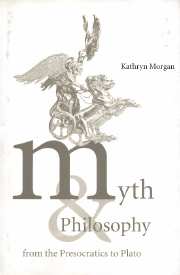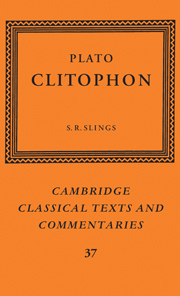Likeness and Likelihood in the Presocratics and Plato
The Greek word eoikos can be translated in various ways, being used to describe similarity, plausibility or even suitability. This book explores the philosophical exploitation of its multiple meanings by three philosophers, Xenophanes, Parmenides and Plato. It offers new interpretations of the way that each employs the term to describe the status of his philosophy, tracing the development of this philosophical use of eoikos from the fallibilism of Xenophanes through the deceptive cosmology of Parmenides to Plato's Timaeus. The central premise of the book is that, in reflecting on the eoikos status of their accounts, Xenophanes, Parmenides and Plato are manipulating the contexts and connotations of the term as it has been used by their predecessors. By focusing on this continuity in the development of the philosophical use of eoikos, the book serves to enhance our understanding of the epistemology and methodology of Xenophanes, Parmenides and Plato's Timaeus.
- Makes a significant contribution to understanding three important Greek philosophers: Xenophanes, Parmenides and Plato
- Treats both philosophical and philological aspects of these writers
- All Greek and Latin translated in the main text
Reviews & endorsements
'Brilliant … a fresh and promising new voice in the ongoing study of ancient philosophy.' William H. F. Altman, Ancient Philosophy
Product details
No date availableHardback
9780521762946
218 pages
223 × 145 × 11 mm
0.42kg
Table of Contents
- Introduction
- 1. Xenophanes' fallibilism
- 2. Parmenides' allusive ambiguity
- 3. Plato's Timaeus
- Imitation and limitation in Timaeus' proemium
- Conclusion.






